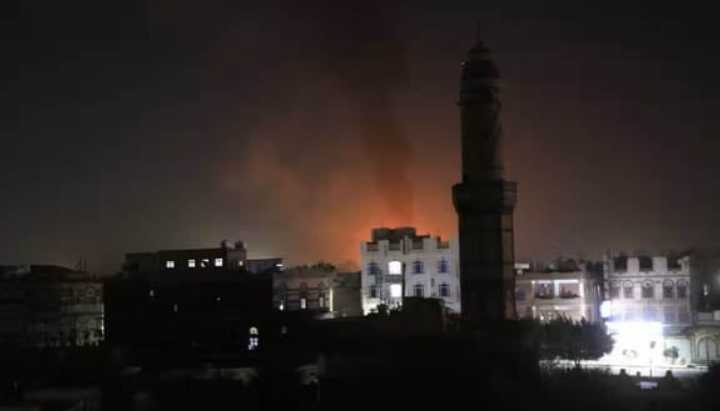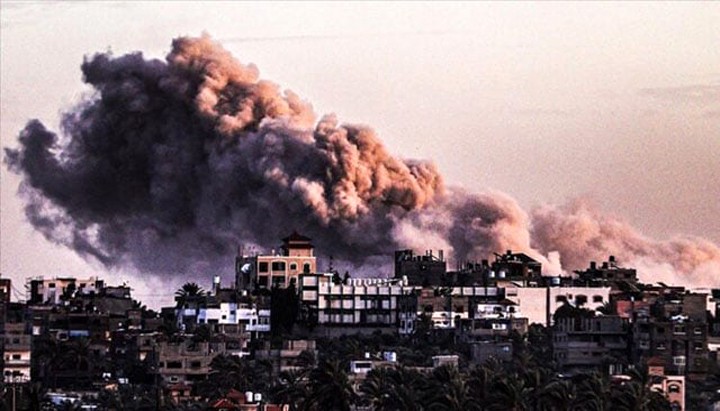A Group of Seven
(G7) price cap on Russian seaborne oil came into force on Monday as the West
tries to limit Moscow's ability to finance its war in Ukraine, though Russia
has said it will not abide by the measure even if it has to cut production.
The G7 nations and Australia on Friday agreed a $60 per
barrel price cap on Russian seaborne crude oil after European Union members
overcame resistance from Poland. Russia is the world's second-largest oil
exporter.
Ukrainian President Volodymyr Zelenskiy said the world had
shown weakness by setting the cap at that level while Russian Deputy Prime
Minister Alexander Novak said on Sunday it was a gross interference that
contradicted the rules of free trade.
"We are working on mechanisms to prohibit the use of a
price cap instrument, regardless of what level is set, because such
interference could further destabilise the market," said Novak, the
Russian government official in charge of its oil, gas, atomic energy and coal.
"We will sell oil and petroleum products only to those
countries that will work with us under market conditions, even if we have to
reduce production a little," he said.
The G7 agreement allows Russian oil to be shipped to
third-party countries using G7 and EU tankers, insurance companies and credit
institutions, only if the cargo is bought at or below the $60 per barrel cap.
Industry players and a US official said in October that
Russia can access enough tankers to ship most of its oil beyond the reach of
the cap, underscoring the limits of the most ambitious plan yet to curb
Russia's wartime revenue.
According to Zelenskiy, the $60 cap would do little to deter
Russia from waging war in Ukraine. "You wouldn't call it a serious
decision to set such a limit for Russian prices, which is quite comfortable for
the budget of a terrorist state."
The United States and its allies have imposed sweeping
sanctions on Russia since it invaded Ukraine on February 24 and sent billions
of dollars in aid to the Ukrainian government.
French President Emmanuel Macron, however, drew criticism
from Ukraine and its Baltic allies over the weekend for suggesting the West
should consider Russia's need for security guarantees if it agrees to talks to
end the war.
Zelenskiy's aide, Mykhailo Podolyak, said the world needed
security guarantees from Russia, not the other way around.
PLANNED BLACKOUTS
In Ukraine, Russia has been pounding power infrastructure
since early October, causing blackouts and leaving millions without heating as
temperatures plummet.
Russia says the assaults do not target civilians and are
meant to reduce Ukraine's ability to fight.
Ukraine says the attacks are a war crime.
Zelenskiy, in a video address on Sunday, urged citizens to
be patient and strong in resisting the rigours of winter.
"To get through this winter, we must be even more
resilient and even more united than ever," he said.
Kyiv Mayor Vitaliy Klitschko said on Telegram that blackouts
would be confined from Monday to planned "stabilisation" cutoffs to
get the grid working again, but added the situation remained
"difficult".
Ukraine's largest power supplier, DTEK, said blackouts were
planned for three other regions - Odesa, Donetsk and Dnipropetrovsk in
Ukraine's south and east.
In Kherson, largely without power since Russian forces
abandoned the southern city last month, the regional governor said 85% of
customers had electricity.
SHELLING ALONG FRONT LINES
On the battlefront, Zelenskiy said Ukrainian forces were
holding positions along the front line, including near Bakhmut, viewed as
Russia's next target in their advance through Donetsk.
Ukraine's military said Russian forces were pressing for
improved tactical positions to advance in the Bakhmut and Avdiivka directions.
About 16 settlements, including Bakhmut and Avdiivka, were shelled by tanks,
mortars, barrel and rocket artillery, the General Staff of Ukraine's armed
forces added.
Russian forces are on the defensive along the Zaporizhzhia
frontline while hitting four settlements in the Donetsk region and six in the
Zaporizhzhia region, Ukraine's army added.
Russia's defence ministry said its troops were conducting
successful operations in the area of Bakhmut and had pushed back Ukrainian
attacks in the Donetsk direction.
Russian-installed officials in the occupied Donetsk said
Ukraine fired at least 10 Grad rockets into the city. There was no word on
casualties.
In Kryvyi Rih, among the largest cities in southern Ukraine,
Russian rockets killed one person and wounded three just after midnight, the
governor of the Dnipropetrovsk region, Valentyn Reznichenko, said.
"They aimed at an industrial enterprise,"
Reznichenko said on the Telegram messaging app without giving details.
Reuters could not independently verify battlefield reports.
The head of US intelligence said fighting in Ukraine was
running at a "reduced tempo" and that militaries on both sides were
looking to refit and resupply to prepare for a counter-offensive after the
winter.
- Reuters








